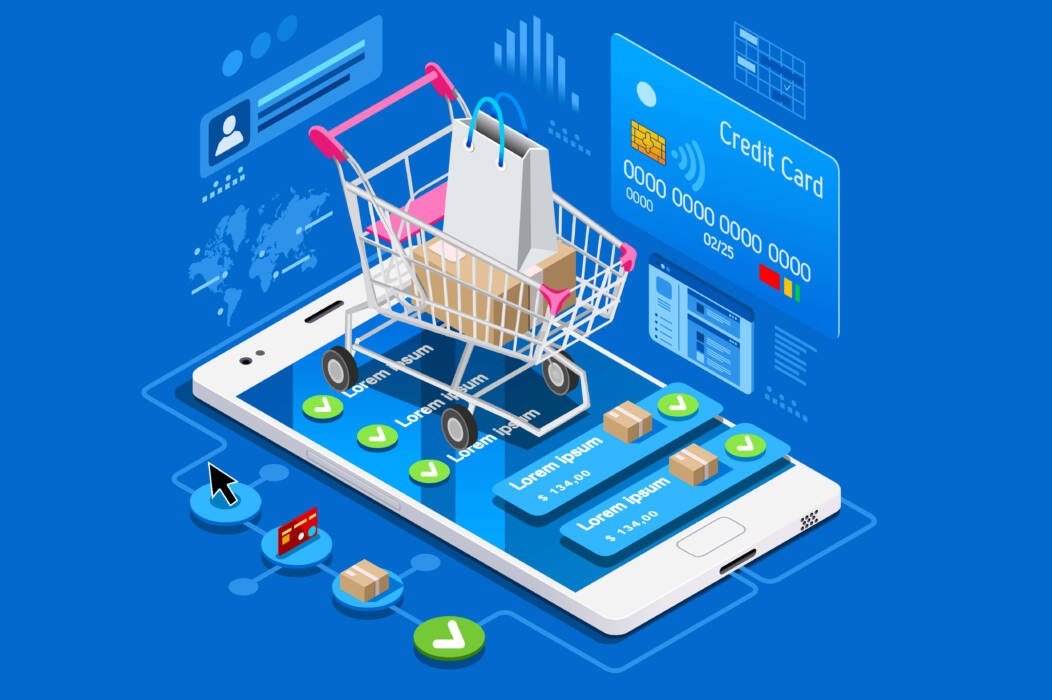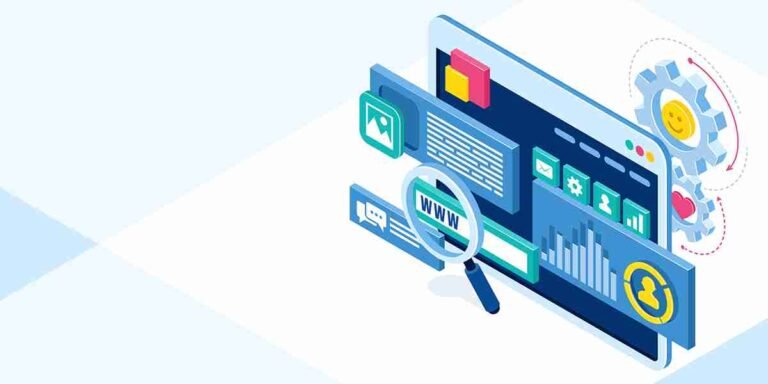Why Web Portal Development is a Game-Changer for E-Commerce

In the rapidly evolving world of e-commerce, businesses need innovative solutions to stay competitive and meet customer expectations. Web portals are proving to be a game-changer, offering a centralized, personalized, and efficient platform for both businesses and consumers. This article explores how web portal development is transforming the e-commerce landscape and why it’s a must-have for modern online businesses.
As e-commerce continues to dominate the global market, businesses are constantly looking for ways to streamline their operations, enhance customer experiences, and drive growth. Web portals have emerged as powerful tools that can help achieve these goals. By providing a single, centralized platform for customers to interact with, businesses can offer a more engaging, personalized, and efficient experience. This is especially important as the competition in the e-commerce sector intensifies and customer expectations rise.
Here’s how web portal development is revolutionizing e-commerce and why it is an essential strategy for businesses looking to thrive in the digital age.
- Centralized Customer Experience
Web portals allow businesses to create a single point of access for customers, streamlining their experience and improving satisfaction. Through these portals, customers can access product catalogs, track orders, manage accounts, and engage with customer service, all in one place. This reduces the need for customers to navigate through multiple pages or systems, offering them a seamless and hassle-free experience. - Personalized Shopping Experience
One of the standout features of modern web portals is their ability to provide personalized experiences. By utilizing customer data and behavior analytics, businesses can customize product recommendations, content, and offers, making the shopping experience more relevant and engaging. Personalized experiences not only boost customer satisfaction but also drive higher conversion rates and repeat business. - Simplified Inventory and Order Management
E-commerce businesses must manage large inventories and fulfill customer orders efficiently. Web portals simplify inventory tracking and order management by providing real-time insights into stock levels, order status, and shipping details. With automated systems for inventory management and order fulfillment, businesses can reduce errors, streamline their operations, and improve delivery times—essential factors in maintaining customer loyalty. - Enhanced Communication and Customer Support
Customer support is crucial to the success of any e-commerce business, and web portals are instrumental in enhancing communication. Through integrated chatbots, live chat, and ticketing systems, businesses can provide fast and effective support to customers. This ensures that queries are answered promptly, issues are resolved quickly, and customers feel valued. Furthermore, portals can store customer interactions, allowing for more personalized support in future engagements. - Mobile-Optimized Solutions
As mobile shopping continues to grow, having a mobile-friendly web portal is essential. Web portals are designed to be responsive, ensuring that customers can access and interact with the e-commerce platform from any device, be it a desktop, tablet, or smartphone. This ensures that businesses can reach their customers wherever they are, enhancing user engagement and boosting sales. - Secure and Scalable Transactions
Security is a major concern for e-commerce businesses, particularly when handling sensitive customer data and payment information. Web portals can be designed with robust security features, such as data encryption, two-factor authentication, and secure payment gateways, to protect customer information. Additionally, as the business grows, web portals can be easily scaled to handle increased traffic, larger product catalogs, and more complex transactions, making them an ideal solution for e-commerce businesses of all sizes. - Data-Driven Insights for Better Decision-Making
Data is a valuable resource in e-commerce, and web portals provide businesses with the tools to gather, analyze, and act on customer behavior and transactional data. By integrating web analytics into the portal, businesses can track user activity, identify trends, and make data-driven decisions to optimize marketing strategies, improve product offerings, and enhance overall customer experience. - Simplified Payment Processing
Web portals can integrate a variety of payment gateways to ensure seamless transactions. Whether customers prefer credit cards, e-wallets, or bank transfers, a web portal can offer multiple payment options, catering to diverse customer preferences. This flexibility not only improves convenience for customers but also helps businesses expand their customer base. - Automated Marketing and Loyalty Programs
Another significant benefit of web portals in e-commerce is their ability to automate marketing and loyalty programs. Businesses can set up automated email campaigns, discounts, and promotions based on customer behavior, driving sales and fostering customer loyalty. Loyalty programs integrated into the portal also encourage repeat purchases by rewarding customers with points, discounts, or exclusive offers. - Integration with Third-Party Services
Web portals enable easy integration with third-party services such as CRM systems, payment processors, shipping providers, and marketing tools. This integration streamlines business operations, reduces the need for manual data entry, and ensures that all systems work seamlessly together. It also allows businesses to offer additional services such as live tracking, multi-channel marketing, and customer relationship management—all from within the same portal. - Multilingual and Multi-Currency Support
For e-commerce businesses looking to expand internationally, web portals can be developed with multilingual and multi-currency support. This allows businesses to cater to a global audience, offering localized experiences that make customers feel more comfortable and valued. By removing language barriers and providing localized pricing, businesses can tap into new markets and grow their global presence.
In conclusion, web portal development is a game-changer for e-commerce businesses, offering numerous benefits such as centralized management, enhanced customer experience, secure transactions, and scalability. By adopting a web portal as part of their digital strategy, e-commerce businesses can stay ahead of the competition, drive growth, and provide customers with an exceptional shopping experience.














